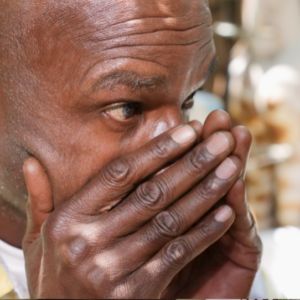Ongoing Grief: Is Your Grief Normal Or Something Else?

Ongoing Grief: Is Your Grief Normal Or Something Else?
June 22, 2022
If you’re getting older then you’re likely getting experience in what it’s like to grieve. None of us escape the inevitable losses that accompany aging. Whether it’s the literal death of loved ones or friends, the emotional loss of chapters that have closed or friendships that have faded, or even the existential loss of your identity and the meaning your life used to hold, we all face the demons of loss and grief. As one psychologist summed it up, “Learning to cope with grief and loss is an essential skill.” The other essential truth about loss and grief? There’s no one right way to grieve nor one natural point when it ends. Everyone finds their own unique way through it, often with the help of friends and loved ones or support groups and valuable resources.
Regarding help for those who are grieving (either for a loved one or for yourself), we’ve previously published posts with available resources and recommendations, and the suggestions and insights continue to come forth, especially as we work our way through the pandemic and the grief and pain that so many of us carried during that time. For example, just recently some valuable new books about grief have been published. Dr. Pauline Boss, a renowned expert and founder of the concept of “ambiguous loss,” published a book, The Myth of Closure: Ambiguous Loss in a Time of Pandemic and Change. Decrying the need for “closure” after a loss, Dr. Boss instead uses scientific-backed methods to cope. As Dr. Boss said in a recent interview, “Finding closure after a loss is a futile effort because if you lose someone or something you were once attached to- pets, a house, humans- you don’t get over it, nor do you need to. You need to learn how to live with that loss, and how to grieve.” Boss argues that you can build resilience (including finding meaning in the loss and learning to live with ambiguity by stretching beyond your comfort zone). But setting a calendar date by which time your grief should be over is unrealistic and unnatural. You can find out more about Dr. Boss’s work on the concept of ambiguous loss here.
Another book recently published is by Rebecca Soffer, founder of the website Modern Loss, a platform for individuals to share their stories of loss and grief and find community among others facing the same. With humor and candor, the site is meant for “beginners” and experts alike- a space with no judgment. Soffer’s new book is entitled The Modern Loss Handbook: An Interactive Guide to Moving Through Grief and Building Your Resilience and it’s a platitude-free, refreshingly modern look at loss, grief, relationships, and moving forward without the one you love. And speaking of modern approaches to grief, MarketWatch recently published a post on non-traditional ways to process your grief, with recommendations ranging from grief yoga to grief cruises. To find out more, get into child’s pose and click here.
Perhaps the most provocative news relating to grief is the recent advent of a new psychiatric diagnosis called Complicated Grief or Prolonged Grief Disorder. For a long time, there’s been debate in the psychiatric community as to whether intense, long-lasting grief should be considered a psychiatric disorder and thus target for medical treatment. There are some who worry that this designation will “pathologize” a very human and natural experience that will now be the target of insurance reimbursement or pharmaceutical interventions. Yet others claim that for the small percentage of the population whose daily life is unduly disrupted by intense, long-lasting (over 12 months) grief, it’s important to recognize that special interventions and therapies may be necessary to bring relief to these suffering individuals. Patients with prolonged grief disorder may be in chronic mourning, unable to function, and even at risk of suicide. It is thought they experience unique brain activity distinct from depression or more typical forms of grief. But whether you believe this condition is in need of a specific psychiatric label or not, one thing is clear: “Turning grief into a mental disorder at least draws notice to the enormousness of the losses we face and to the bereavement that underlies all of them: the loss of the familiar.” In these unfamiliar times, it’s at least some comfort to know that we all share this ambiguous, unpredictable, and utterly devastating fact of life: that is, the inevitable loss of someone (or something) who made an indelible mark on our lives.







